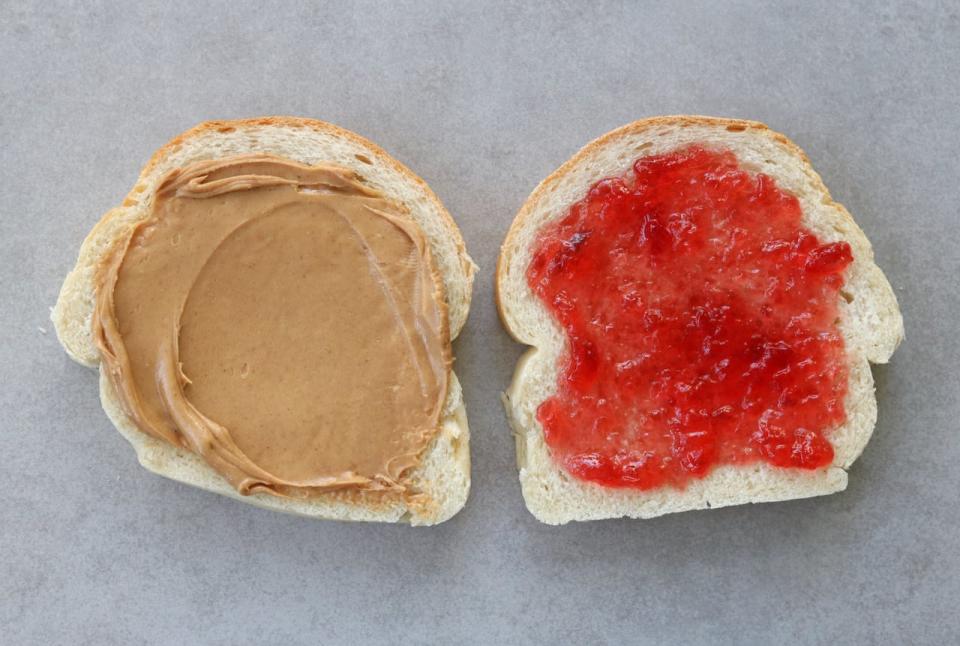PB and J, together again: Whitehorse school eases longstanding ban on nuts

Some elementary students in Whitehorse are heading back to school after the holidays with something they haven't been able to pack in their lunches before: peanut butter sandwiches.
Nuts have been banned in most elementary schools for decades, but École Émilie Tremblay has now changed its policy on nuts, away from a total ban and instead toward a focus on allergy awareness.
"Safety of kids at school is something that we will not be compromising," said principal Marie-Hélène Gagné.
Although many elementary schools in Canada still ban nuts, researchers at McMaster University have said there isn't good evidence to support that. They say food bans of peanuts and other items in schools and child-care centres aren't effective or necessary in preventing allergic reactions.
Gagné says École Émilie Tremblay was approached by a group of parents interested in updating her school's approach to nuts. After consultations with staff and parents, she says there's been no opposition to shifting direction.
"Not allowing nuts and peanuts in class gave students a false sense of safety," said Gagné.

Peanut butter and jelly sandwiches are a lunch classic, but for years now they've been banned at many schools to protect children who have nut allergies. (Julie Van Rosendaal/CBC)
Starting this week, students in Grades 3 to 6 are permitted to have nuts and nut butter in their lunches. Grade 1 and 2 students can also have nuts but only if there are no allergies in their class.
Prior to the change, Gagné says all staff have done specific anaphylaxis training. As part of the new approach, students will also be encouraged to wash their hands after eating nuts and not share food.
Gagné says the shift includes education related to managing food allergies and ensuring the school has a stock of epinephrine autoinjectors, like the EpiPen.
The exception to the new rules at Émilie Tremblay are the youngest students. Gagné says children in kindergarten and junior kindergarten are too young to take on the awareness and responsibility of the new protocol, so the ban on nuts remains in place for those grades.
"I do agree with the idea of educating children because eventually in life, they are going to have to take care of themselves. So it may come down to a question of, at what age can we be confident within a group of peers they're able to look out for each other?" said parent Ryan Durack.

École Émilie Tremblay in Whitehorse. (Sarah Xenos/Radio-Canada)
Other parents at the school, such as Claire Ness, are also welcoming the change and the chance to send peanut-butter-and-jelly sandwiches to school.
"I've been trying to buy sandwich meat all the time and fill bread with other things, but peanut butter is exciting — it's a very easy, go-to thing," said Ness.
Although Émilie Tremblay is among the early elementary-school adopters of the new approach to allergens, there is potential for other elementary schools in the territory to follow suit.
The Yukon Government's policy on anaphylaxis allows school administrators to establish restrictions or other precautions about certain food products in their schools, as needed. Nuts are not restricted at any of the Whitehorse secondary schools.


